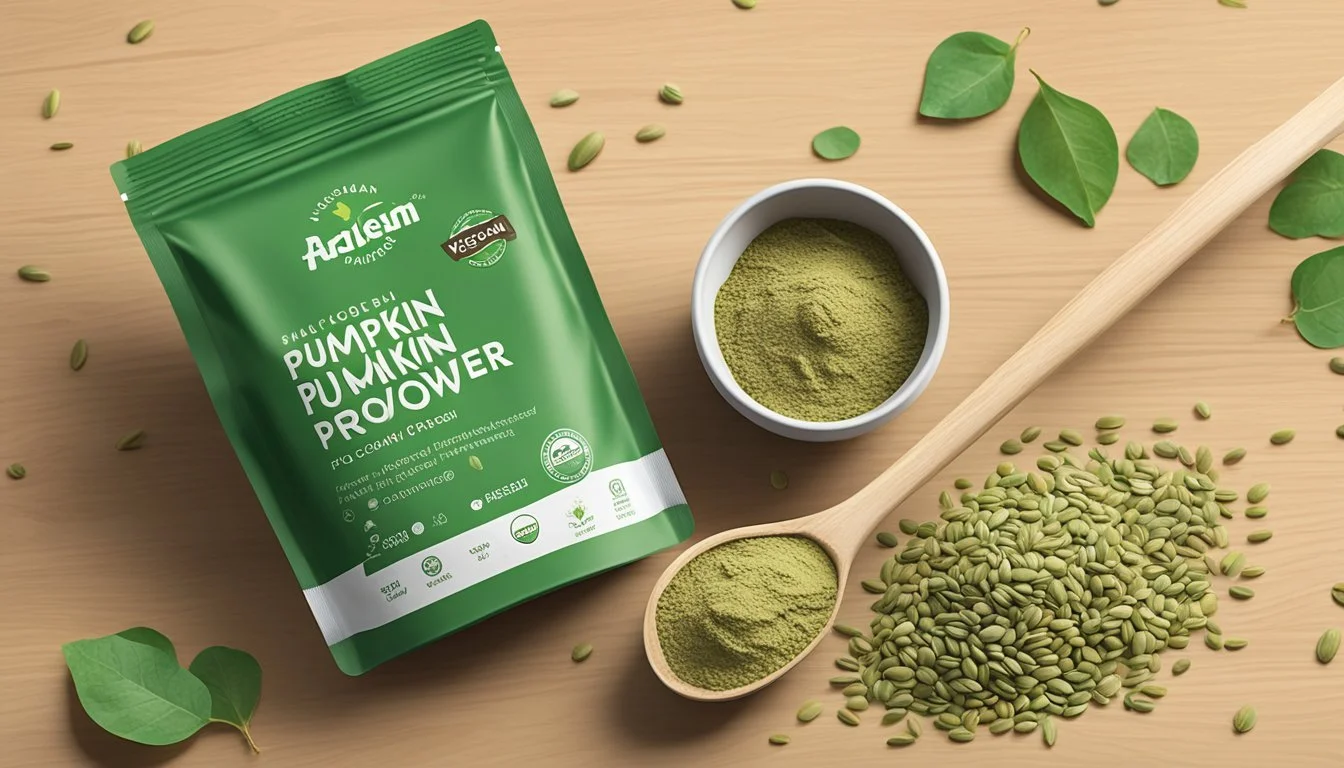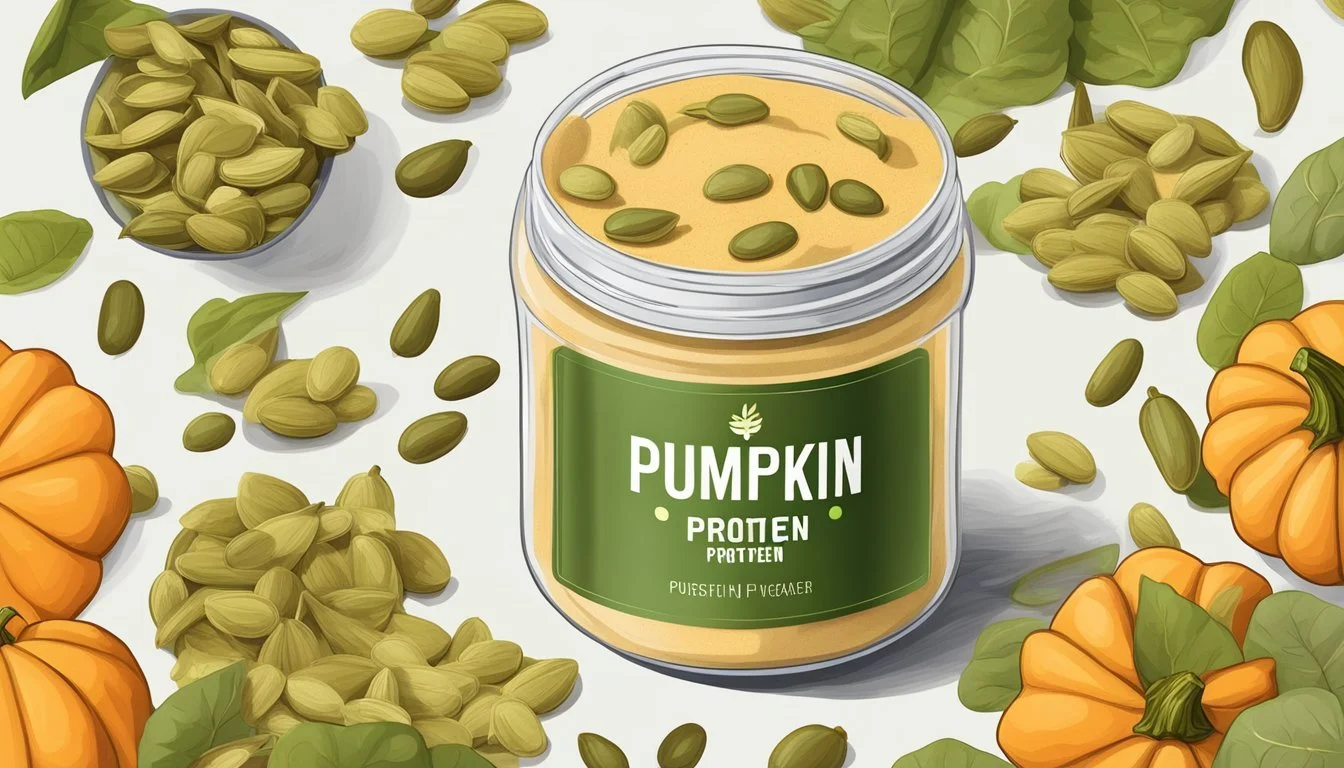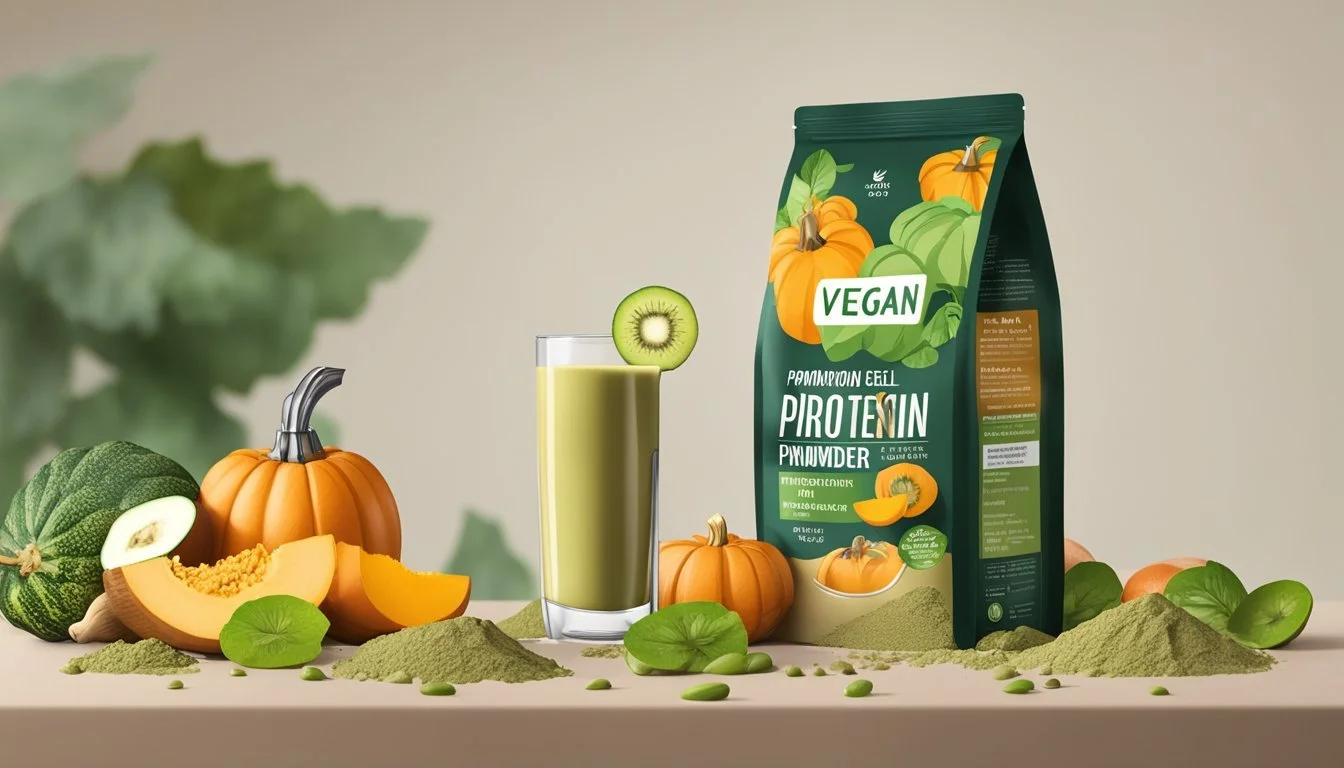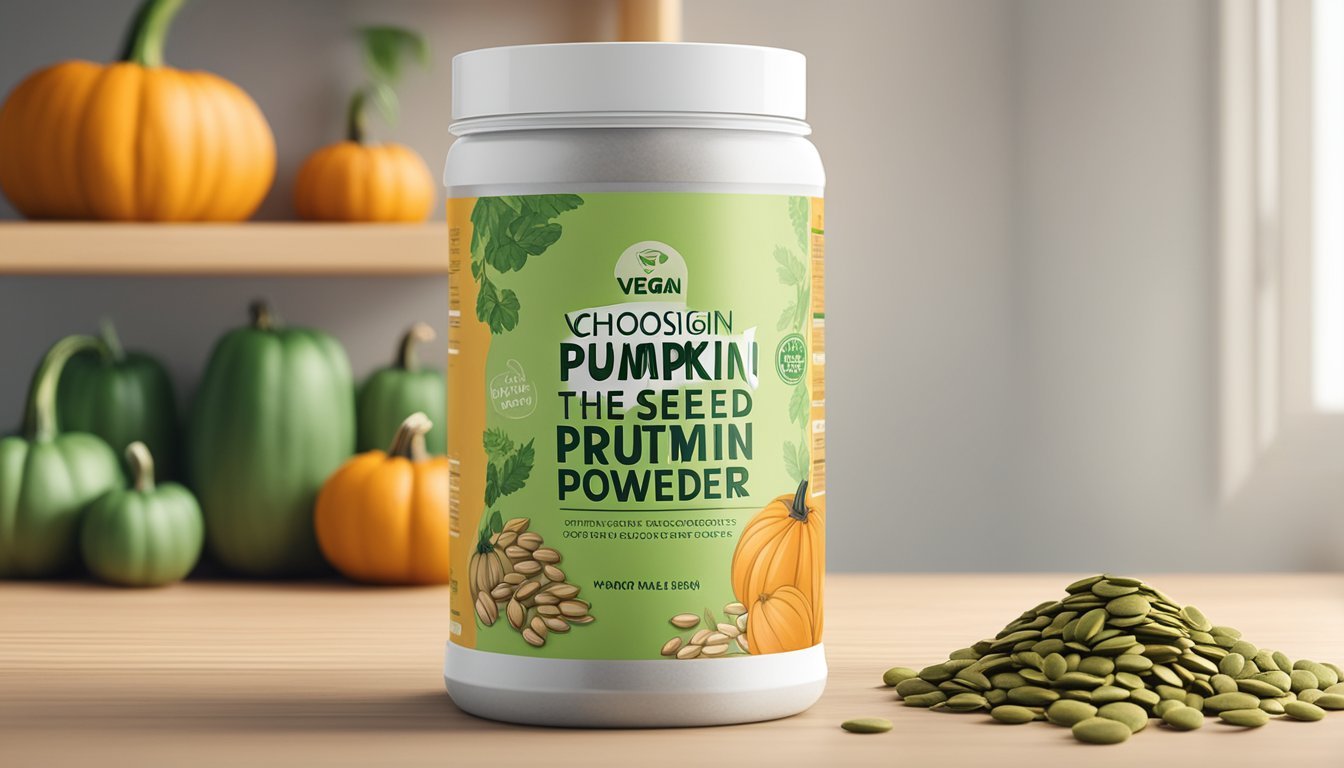Is Pumpkin Seed Protein Powder Vegan?
Unveiling the Plant-Based Truth
Pumpkin seed protein powder is a plant-based supplement that has gained popularity among vegans and those looking for alternative protein sources. Derived from the seeds of pumpkins, this protein powder is entirely vegan, as it contains no animal products or byproducts. Rich in protein and other nutrients, pumpkin seed protein powder is considered an excellent choice for individuals following a vegan diet, seeking to increase their protein intake without relying on traditional animal-based proteins.
The nutritional profile of pumpkin seed protein powder showcases its benefits beyond just its vegan status. Not only does it provide a substantial amount of protein, but it also contains essential amino acids, although, like many other plant proteins except soy and quinoa, it might be low in one or more of these amino acids. Offering a slightly higher protein content compared to some other seed-based proteins, pumpkin seeds are recognized for their quality and effectiveness in meeting dietary protein needs.
As the market for vegan supplements expands, pumpkin seed protein powder stands out for its natural origin and compatibility with vegan dietary guidelines. It provides a clean, sustainable protein source suitable for those with dietary restrictions, and its neutral taste makes it a versatile ingredient in vegan recipes from smoothies to baked goods. The growing demand for such vegan-friendly products reflects a broader trend towards plant-based nutrition and a sustainable lifestyle.
What Is Pumpkin Seed Protein Powder?
Pumpkin seed protein powder is a plant-based supplement renowned for its protein content and nutritional benefits. It serves as a versatile protein source for those pursuing a vegan diet.
Definition and Extraction Process
Pumpkin seed protein powder is derived from the seeds of pumpkins. The seeds are cold-pressed to remove the oil, and the remaining defatted seed meal is then ground into a fine powder. This extraction process ensures that the protein content is concentrated, and the powder retains a majority of the seeds' inherent nutrients.
Nutritional Composition
The nutritional profile of pumpkin seed protein powder is impressive, as it is rich in essential amino acids and boasts a high protein content. A typical serving size of 28 grams can provide around 18 grams of protein. This protein supplement is also abundant in minerals such as magnesium, iron, and zinc, and it contains a good amount of dietary fiber. Unlike some protein powders, pumpkin seed protein powder includes a complete amino acid profile, meaning it has all nine essential amino acids that the body cannot synthesize on its own and must obtain from dietary sources.
Protein: Aids in muscle repair and growth
Fiber: Benefits digestive health
Magnesium: Essential for many biochemical reactions in the body
Iron: Vital for oxygen transport and energy production
Zinc: Supports immune system function
The vegan nature of pumpkin seed protein powder makes it a preferred choice for those on a plant-based diet seeking to increase their protein intake.
Benefits of Pumpkin Seed Protein Powder
Pumpkin seed protein powder provides a plant-based protein source that is rich in nutrients and aligns with vegan dietary practices. It is particularly noted for muscle building, cardiovascular health, and its suitability for vegans and vegetarians due to its high protein content and range of essential amino acids.
Muscle Building and Recovery
Pumpkin seed protein powder is a rich source of protein, with some products offering as much as 60g of protein per 100g of powder. It contains all nine essential branched-chain amino acids (BCAAs), which are crucial for muscle synthesis and repair. The high protein content promotes muscle building and aids in recovery post-exercise, making it a valuable supplement for athletes and fitness enthusiasts.
Heart Health and Disease Prevention
Including pumpkin seed protein powder in one's diet may contribute to heart health by reducing inflammation and helping to maintain healthy cholesterol levels. The seeds are a natural source of antioxidants and anti-inflammatory compounds, which may lower the risk of heart disease. Regular consumption as part of a balanced diet could play a role in disease prevention.
Benefits for Vegans and Vegetarians
For individuals following a vegan or plant-based diet, pumpkin seed protein powder serves as an excellent source of complete protein, often difficult to obtain from plant-based foods alone. It provides the body with essential nutrients typically sourced from animal products, without any animal-derived ingredients, ensuring that vegans and vegetarians can meet their protein and amino acid needs for overall health.
Vegan Protein Powders Vs. Pumpkin Seed Protein Powder
Vegan protein powders offer a diverse range of options for those following a plant-based diet, with pumpkin seed protein powder presenting a unique profile in this category. This section will compare the composition and allergens of pumpkin seed protein powder to other common vegan protein sources.
Comparing Plant-Based Protein Sources
Pumpkin seed protein powder is derived from the cold-pressed oil extraction of pumpkin seeds, which results in a high protein content and a rich nutrient profile that includes magnesium and zinc. Soy protein and pea protein are two of the most prevalent proteins in the vegan market, known for their complete amino acid profiles and high digestibility.
Soy Protein: Complete protein, high in leucine, supports muscle growth.
Pea Protein: High in BCAAs, iron-rich, beneficial for muscle repair.
Hemp Protein: Provides omega-3 and omega-6 fatty acids, fiber-rich.
Pumpkin Seed Protein: High in antioxidants, magnesium, and zinc.
Pumpkin seed protein is particularly noted for its ability to provide a significant amount of protein while also contributing to the intake of essential minerals.
Allergens and Dietary Restrictions
When considering allergies and dietary restrictions, pumpkin seed protein powder is a compelling option as it's naturally gluten-free and nut-free, making it suitable for individuals with common allergens. Soy protein, while popular, can be an allergen for some people and is not suitable for those with soy allergies. Pea protein is generally well-tolerated, barring rare legume allergies, and is often chosen by those avoiding soy or gluten. Hemp protein, while uncommon as an allergen, can still contain trace amounts of THC, which may concern some individuals despite the low levels that do not cause psychoactive effects.
Pumpkin seed protein powder has an edge for individuals looking for nut-free, gluten-free options, which enhances its appeal within the vegan protein market. Here's a brief comparative look at potential allergens:
Protein Type Gluten-Free Nut-Free Soy-Free Soy Protein Yes Yes No Pea Protein Yes Yes Yes Hemp Protein Yes Yes Yes Pumpkin Seed Protein Yes Yes Yes
Pumpkin seed protein is favorably positioned for those with diet-specific concerns, offering a safe alternative to common allergens found in other vegan protein sources.
How to Use Pumpkin Seed Protein Powder
Pumpkin seed protein powder is a versatile vegan supplement that can easily be integrated into a variety of meals and shakes. It offers a plant-based protein boost for those adhering to a vegan diet and is recommended by dietitians for its nutritional benefits.
Incorporation into Meals and Shakes
To incorporate pumpkin seed protein powder into meals, one can stir it into oatmeal or sprinkle it over salads for added texture and nutrients. Vegans can enjoy its benefits by blending the powder into smoothies or shakes, which provides a convenient protein source. Here's a simple way to add it to your diet:
Smoothie: Combine pumpkin seed protein powder with vegan milk alternatives, fruits, and leafy greens.
Baking: Add to batters for vegan muffins or pancakes.
Dressing: Mix into dressings for an added protein punch for salads.
Recommended Dosage and Daily Intake
It's recommended to follow the guidelines on the pumpkin seed protein powder packaging or consult a dietitian for personalized advice. Common serving sizes typically range between 10-30 grams per serving. Here’s a quick reference:
Maintenance: 1 scoop (approx. 10 grams) in meals for nutritional supplementation.
Muscle Building: Up to 2-3 scoops (approx. 20-30 grams) post-exercise in shakes or smoothies.
Inclusion in the daily diet is easy, and servings should be adjusted according to individual dietary needs and activity level.
Quality and Safety of Pumpkin Seed Protein Powder
When selecting a pumpkin seed protein powder, consumers should consider both the quality of the product and its safety profile. Ensuring that the protein powder meets certain certifications and standards can serve as a benchmark for quality, while being aware of potential contaminants is crucial for safety.
Certifications and Standards
Pumpkin seed protein powder is considered a high-quality vegan protein source. To ascertain its quality:
Organic Certification: Consumers may prefer pumpkin seed protein powder that is certified organic, which indicates that the pumpkin seeds were grown without synthetic pesticides and fertilizers.
Vegan Certification: A certified vegan label ensures that the protein powder does not contain animal products and by-products.
Non-GMO Verification: Non-GMO Project Verified pumpkin seed protein powder verifies that the product is free from genetically modified organisms.
Food Safety Certifications: Look for powders that are certified by recognized organizations such as NSF International or that adhere to FDA guidelines, which indicates that the product meets stringent health and safety standards.
Potential Contaminants and Considerations
Like any food product, pumpkin seed protein powder could potentially contain contaminants:
Heavy Metals: Test results for heavy metals such as lead, mercury, cadmium, and arsenic should be within the safe limits established by regulatory bodies.
Allergen Cross-Contamination: Processing facilities can accidentally introduce allergens. Facilities that process only pumpkin seed protein or adhere to strict cross-contamination protocols offer a higher safety guarantee for people with allergies.
Shelf Life and Storage: To maintain safety and quality, the protein powder should be stored in a cool, dry place, and used within the manufacturer's recommended shelf life period.
By choosing a pumpkin seed protein powder that meets rigorous certification standards and is vigilant about potential contaminants, consumers can be confident in the product's safety and quality.
Choosing the Right Pumpkin Seed Protein Powder
When selecting a pumpkin seed protein powder, consumers must consider both flavor preferences and ingredient quality to ensure the product aligns with their dietary requirements and taste inclinations.
Flavored Vs. Unflavored Varieties
The market offers both flavored and unflavored pumpkin seed protein powders. Flavored varieties often include natural sweeteners like stevia or monk fruit, and are infused with popular tastes such as vanilla, chocolate, or cinnamon. These can enhance the flavor profile of shakes and baked goods. Unflavored options, on the other hand, provide a more natural, earthy taste of pumpkin seeds and offer versatility for those who prefer to control the flavoring of their food or beverages themselves.
Reading Labels and Ingredient Lists
When examining pumpkin seed protein powder products, it's crucial to read labels and ingredient lists meticulously. Look for powders that specify non-GMO or organic to ensure the absence of genetically modified ingredients and the use of organic farming practices. Ingredient lists should be free from added sugars and unnecessary additives. Consumers should also be mindful of certification labels that align with their lifestyle choices, such as vegan or gluten-free certifications.








